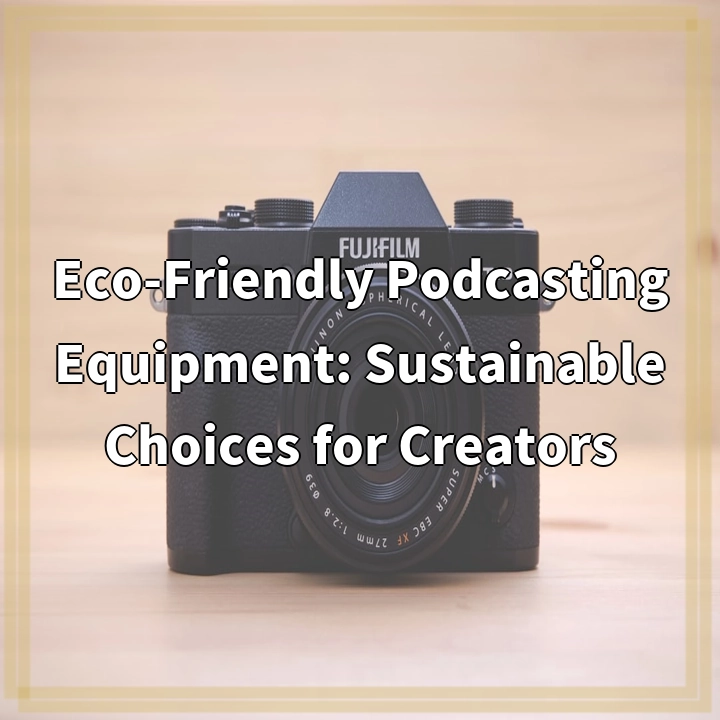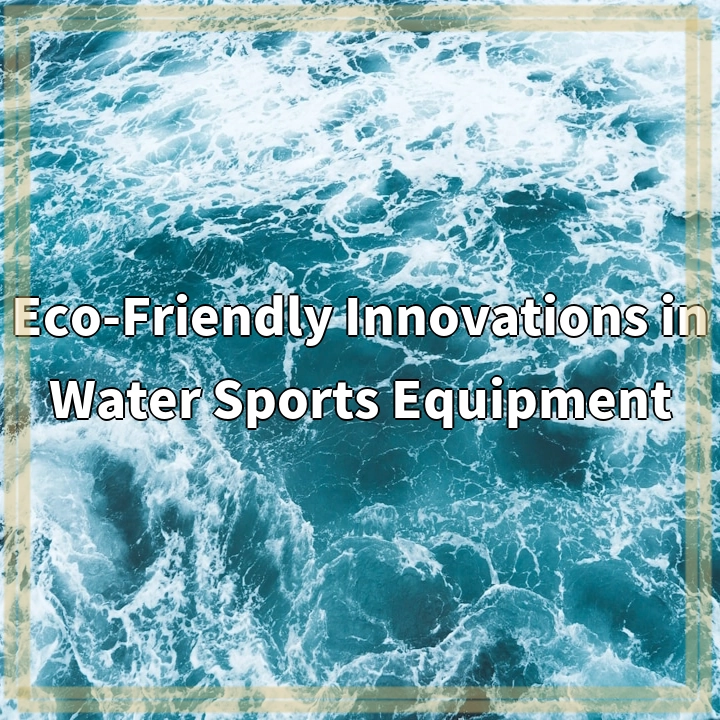
What it is
Eco-friendly podcasting equipment refers to tools and devices designed to minimize environmental impact during the production of audio content. This includes microphones, headphones, mixers, and recording devices created from sustainable materials, energy-efficient technologies, and practices that reduce waste. With the growing awareness of climate change and environmental degradation, creators are increasingly seeking ways to align their production processes with eco-friendly principles.
Real-World Problems
Despite the rise in eco-friendly podcasting equipment options, several real-world problems persist in the podcasting landscape:
1. Electronic Waste
The podcasting industry, like many others, contributes to electronic waste (e-waste) through outdated and discarded equipment. Many traditional audio devices have a short lifespan and are often not recyclable, leading to significant landfill issues. Even when eco-friendly products are sourced, the improper disposal of older equipment poses a threat to the environment.
2. Manufacturing Practices
Many eco-friendly podcasting products still rely on manufacturers that use non-sustainable practices. The production process for technology can involve harmful chemicals and unsustainable sourcing of materials. As a result, even with a label of sustainability, the overall environmental footprint can remain high if the supply chain lacks transparency and accountability.
3. Accessibility and Cost
Eco-friendly podcasting equipment is often more expensive than traditional options due to the sustainable materials and practices involved in their production. This can create a barrier for emerging creators or those operating on tight budgets. The need for affordability can lead many to prioritize cost over environmental considerations, compromising sustainability.
4. Lack of Awareness
Many podcasters may not be aware of eco-friendly equipment options or the environmental impact of their choices. This lack of knowledge can hinder the widespread adoption of sustainable practices in the industry. Educating creators about available options and the importance of sustainability is crucial to fostering change.
5. Energy Consumption
Podcasting does not just incorporate hardware; it also involves software and energy use. The hosting services, digital storage, and streaming platforms utilized consume significant electricity, much of which may come from non-renewable sources. Choosing eco-friendly hosting solutions and adopting energy-efficient practices are essential steps that are often overlooked.

Solutions to Eco-Friendly Podcasting Equipment Challenges
To address the environmental issues associated with podcasting equipment, several proactive solutions are essential. By implementing these strategies, podcast creators can reduce their ecological footprint while promoting sustainability in their productions.
1. Choose Sustainable Equipment
Investing in eco-friendly podcasting equipment is vital. Creators should look for products made from sustainable materials, such as recycled plastics and biodegradable components. Additionally, prioritizing brands that emphasize sustainable manufacturing practices can help minimize the ecological impact.
2. Promote Recyclable and Repairable Options
Creators can reduce e-waste by choosing equipment that is designed to be easily recyclable or repairable. This extends the lifespan of products and encourages responsible disposal methods. Engaging with manufacturers that offer take-back programs can also mitigate waste effectively.
3. Educate and Raise Awareness
Creating a culture of sustainability within the podcasting community is essential. By sharing knowledge about eco-friendly options and the importance of environmentally conscious choices, creators can inspire others to consider sustainability in their productions, helping to spread awareness and influence positive change.
4. Utilize Energy-Efficient Hosting
Choosing podcast hosting services that prioritize renewable energy sources can significantly reduce the carbon footprint of an audio project. Opting for platforms that utilize green data centers and offer energy-efficient solutions is an effective step toward ecological responsibility.
5. Encourage Minimalism in Production
Embracing minimalism in podcasting can reduce the need for excessive equipment. Creators should evaluate their production needs critically and avoid unnecessary purchases. By focusing on quality over quantity, they can streamline their setups, thus promoting sustainability.
6. Advocate for Sustainable Practices
By advocating for sustainable practices within the industry, podcasters can influence manufacturers and peers alike to prioritize eco-friendly choices. Participation in forums, workshops, and online discussions is an excellent way to encourage a collective shift toward sustainability and foster a supportive community.















